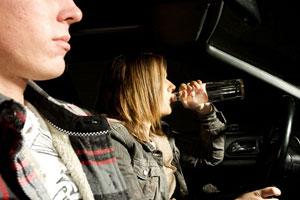According to the Substance Abuse and Mental Health Services Administration (SAMHSA), youth between the ages of 12 and 17 are far more likely to start using most substances during the summer than during other parts of the year.
On an average day in June and July, more than 11,000 adolescents aged 12 to 17 use alcohol for the first time – December is the only other month with comparable levels. Throughout the rest of the year the daily average for first-time alcohol use ranges from 5,000 to 8,000 adolescents. In terms of first-time use of marijuana, more than 4,500 youth start using it on an average day in June and July, as opposed to about 3,000 to 4,000 youths during the other months.
“More free time and less adult supervision can make the summertime an exciting time for many young people, but it can also increase the likelihood of exposure to the dangers of substance abuse,” said SAMHSA Administrator Pamela S. Hyde. “That is why it is critically important to take every opportunity we can throughout the year to talk to our young people about the real risks of substance abuse and effective measures for avoiding it, so they will be informed and capable of making the right decisions on their own.”
The tips below can assist parents to set the community-wide tone that underage drinking and drug use are unsafe, unhealthy, and unacceptable.
- Set Summertime Rules: Make clear your rules regarding unsupervised time spent with friends, as well as your expectations surrounding drinking, smoking and other risky behaviors.
- Supervise: This can be challenging for parents of high school students; however, be physically present when you can. And when you can’t, try asking a neighbor to randomly check in.
- Monitor: Know with whom and where your child is at all times. Randomly call and text your teen to check in, and don’t be afraid to check up on your child by calling another parent.
- Engage: Provide some structure to your teen’s summer by helping him/her find a summer job or engaging him/her in a supervised activity (sports, camps, classes, etc.).
- Team Up: Get to know the parents of your teen’s friends. Speak with them to ensure you have a unified and consistent no-use stance.
- Stay Involved: Show your teen you care by taking time out of your busy schedule to do something fun and interactive together this summer (head to the movies, volunteer together, take a bike ride, etc.).
- Communicate: Regardless of season, it is always a good time to talk to your teen about the dangers of alcohol, tobacco and other drugs. Open (or maintain) the lines of communication and be your child’s trusted source of information.
Talbot Partnership advises that it is important to discourage children and teens from alcohol and other drugs because it damages brains, increases their risk of addiction and can cause accidents that lead to an early death.
The younger people are when they start drinking, the more likely they are to have significant alcohol problems in their lifetime, including abuse and addiction, according to pediatrician Janet Williams, a professor of pediatrics at the University of Texas Health Science Center in San Antonio.
For further information on the dangers of alcohol and other drugs, contact Talbot Partnership at410-819-8067. Please also visit our website at www.talbotpartnership.org or find us on Facebook.



Write a Letter to the Editor on this Article
We encourage readers to offer their point of view on this article by submitting the following form. Editing is sometimes necessary and is done at the discretion of the editorial staff.